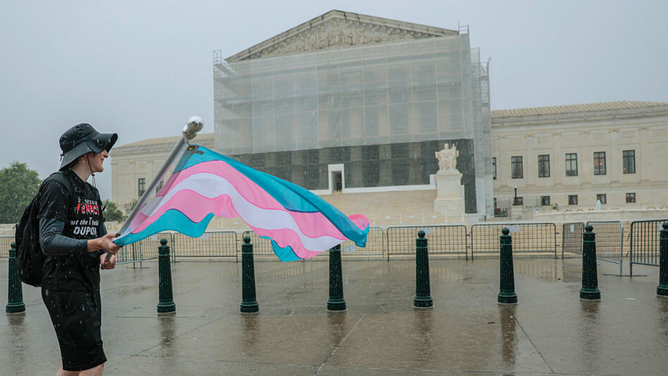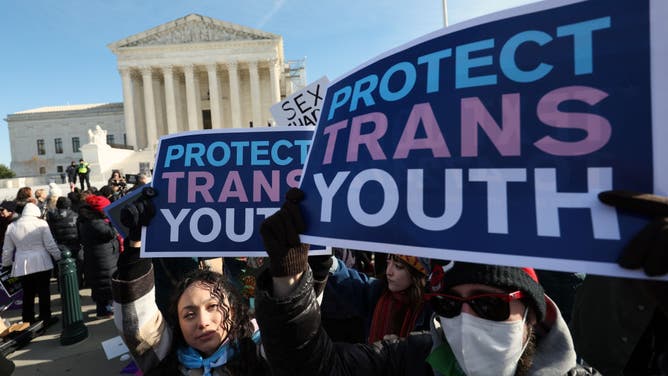Supreme Court To Decide Legality Of State Bans On Trans Athletes In Girls’ Sports
The Court will hear appeals from Idaho and West Virginia, with a ruling expected by mid-2026.
In a decision with sweeping implications for youth and collegiate athletics nationwide, the U.S. Supreme Court announced Thursday it will take up two high-profile cases challenging state laws that ban transgender-identifying males from competing in girls’ and women’s sports. The move sets the stage for a definitive ruling on whether such policies violate the Constitution and federal civil rights law.
The Court will hear appeals from West Virginia and Idaho, both of which passed laws aimed at preserving sex-based categories in athletics. The cases — West Virginia v. B.P.J. and Little v. Hecox — will be argued this fall, with a decision expected by mid-2026.
The Court’s decision to intervene follows a wave of legal uncertainty across the country. Lower courts have issued conflicting rulings on whether state laws excluding biological males from female sports teams violate the Equal Protection Clause of the 14th Amendment or Title IX. In both the Idaho and West Virginia cases, federal appeals courts sided with transgender athletes, blocking the laws from taking effect.

Activist waves a transgender flag outside the U.S. Supreme Court.
(Photo by Anna Moneymaker/Getty Images)
The case from West Virginia involves Becky Pepper-Jackson, a male middle school student who identifies as transgender and has been undergoing puberty blockers. Pepper-Jackson sued after being barred from joining the school’s girls’ track and cross-country teams under the state’s "Save Women’s Sports Act." The Fourth Circuit Court of Appeals ruled in Pepper-Jackson''s favor, finding that the law likely violated the child's constitutional and civil rights.
In Idaho, Lindsay Hecox, a trans-identifying male student at Boise State University, brought a similar suit after being excluded from women’s college sports due to a 2020 law that restricted participation to biological females only. That law was also blocked by the Ninth Circuit Court of Appeals.
West Virginia Governor Patrick Morrisey praised the Supreme Court's decision to take his state's case.
"After years of work as Attorney General defending West Virginia’s common sense law preventing men from playing in women’s sports, I am very appreciative that the U.S. Supreme Court has announced that it will now hear the case I brought to them last year," Morrisey wrote in a statement on X.
"Men should not play sports with women — it’s a matter of basic fairness. I am optimistic that our work will be vindicated at SCOTUS."
Legal advocacy groups on the other side of the debate, including the ACLU and Lambda Legal, argue that these state laws are discriminatory and are put in place to "hurt and exclude transgender people."
Supreme Court Will Weigh In On Male Athletes In Girls' & Women's Sports
In February, President Donald Trump signed an executive order banning males from participating in girls' and women's sports, promising to withhold federal funding from states that didn't comply. Since then, the Department of Justice and the Department of Education have been at odds with various blue states that have chosen to defy the executive order.
The Supreme Court has previously declined to wade into the issue, choosing not to hear several related appeals over the last few years. But Thursday’s decision to grant review suggests the justices now believe the issue has become pervasive enough — and the legal divisions have grown sharp enough — to warrant a final ruling.

Protesters rally outside of the U.S. Supreme Court as the high court hears arguments in a case on "gender-affirming care" for youth.
(Photo by Kevin Dietsch/Getty Images)
Currently, 27 states have enacted laws restricting transgender athletes from competing in female sports. The Supreme Court’s ruling, expected in the first half of 2026, will likely settle the matter nationwide.
The outcome could also clarify whether Title IX protects gender identity alongside biological sex — an issue with implications far beyond athletics.
The decision to hear these cases comes just two weeks after SCOTUS ruled to uphold Tennessee's ban on so-called "gender-affirming care" for youth.